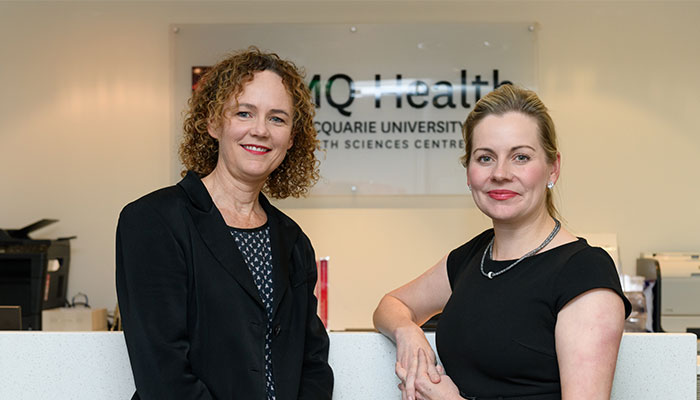HEALTH AND MEDICINE
Drugs and treatments developed in the 2010s are improving outcomes for sufferers of many diseases, writes Dr Simon Willcock, Clinical Director of Primary Care at MQ Health.
In the years since the Macquarie University Hospital and the School of Advanced Medicine opened on campus in 2009, there have been significant advances in medical care. Many inherited and acquired diseases that have previously had limited effective therapeutic options are now associated with improved outcomes and even ‘cure’.

A decade of advancements: new gene-splicing therapies promise great improvements in quality of life for sufferers of genetic disorders.
New drug classes such as monoclonal antibodies are routinely used in the treatment of a wide range of different cancers including metastatic melanoma, and new gene-splicing and gene-editing therapies are promising to provide real improvements for sufferers of many genetic disorders such as cystic fibrosis and some forms of heart disease.
In parallel with significant therapeutic developments the digital age has transformed the way that we interact with health services. Knowledge is now widely available but needs to be interpreted correctly. Previous paternalistic models of health care assumed that the health provider held all of the knowledge and skill. Patients were encouraged to adopt “the sick role” and were absolved from active participation in their own care. This paradigm is inappropriate in 2020, when patients have personal agency and demand to be partners in their health care.
New models of care have the patient at the centre and multidisciplinary teams providing targeted and individualised services.
Bodenheimer’s Quadruple Aim of health care emphasises the centrality of the patient and the importance of their participation in all stages of the health care journey. The other components of the Quadruple Aim include the use of evidence-based and cost effective investigations and treatments to improve population health, and the importance of ensuring the satisfaction and sustainability of the care providers – a recognition that burnout is common amongst health care providers and reduces provider efficacy.

Integration: Surgeon Karen Shaw and physician Karen Tiller from the new MQ Health Breast Health Clinic have adopted the latest thinking in patient care where multidisciplinary teams of doctors offer services and treatments under one roof.
These principles are leading to new models of care with the patient at the centre and multidisciplinary teams providing targeted and individualised services, a model that is reflected in many of the new integrated clinics that are being provided through MQ Health.
The challenge to keep health care accessible to all
The digital age has also fostered globalisation, meaning that health policy can no longer develop in isolation from other social issues. At the beginning of the 2020s we must be concerned that the USA spends almost 18 per cent of GDP on health care (roughly twice that of Australia and other OECD nations) and yet lags many other countries in terms of health outcomes. Their current administration is reverting to a health insurance model where health care is rationed and, in many cases, unavailable to those who need it.
- World first findings pinpoint where and when sharks are likely to attack
- Please explain: Why are teenagers argumentative?
Similar market forces apply in other Western countries, including Australia, and a significant challenge for the next decade will be to maintain equity and access to effective health care in Australia. Macquarie University groups such as the Australian Institute for Health Innovation (AIHI) and the Centre for health Economy (MUCHE) play key roles in ensuring effective policy development.
The Macquarie University Hospital and the School of Advanced Medicine opened on the Macquarie University campus in 2009. During the past decade these entities have grown and consolidated to become MQ Health, Australia’s first integrated health sciences campus, with a mission to “heal, learn and discover”.
Professor Simon M Willcock is Clinical Director of Primary Care at Macquarie University Health Sciences Centre.
A Decade in Review:
- The Economy - Major advances in information and communications technologies such as Uber, Airbnb and Amazon are threatening traditional business models.
- The Environment - Drought, fire, smoke-filled skies and record heat "usher out a decade of inaction on the environment."
- Politics - Reason for hope as Australia holds steady amid rising global instability.



